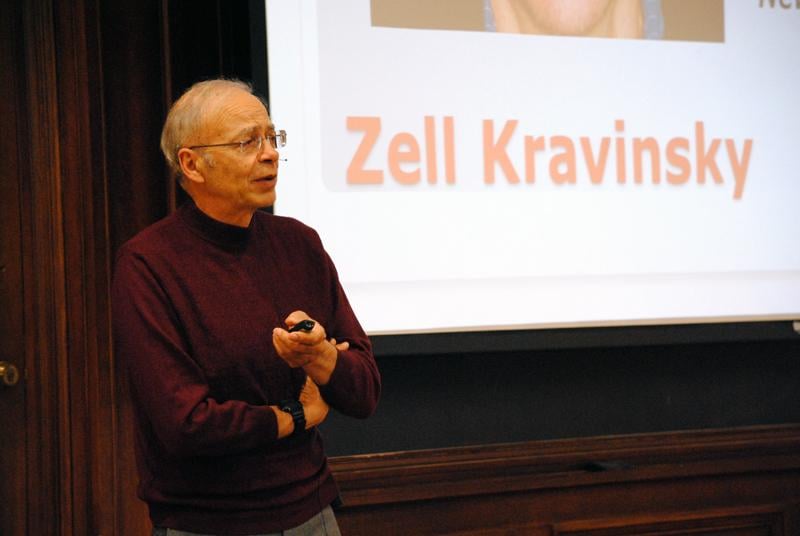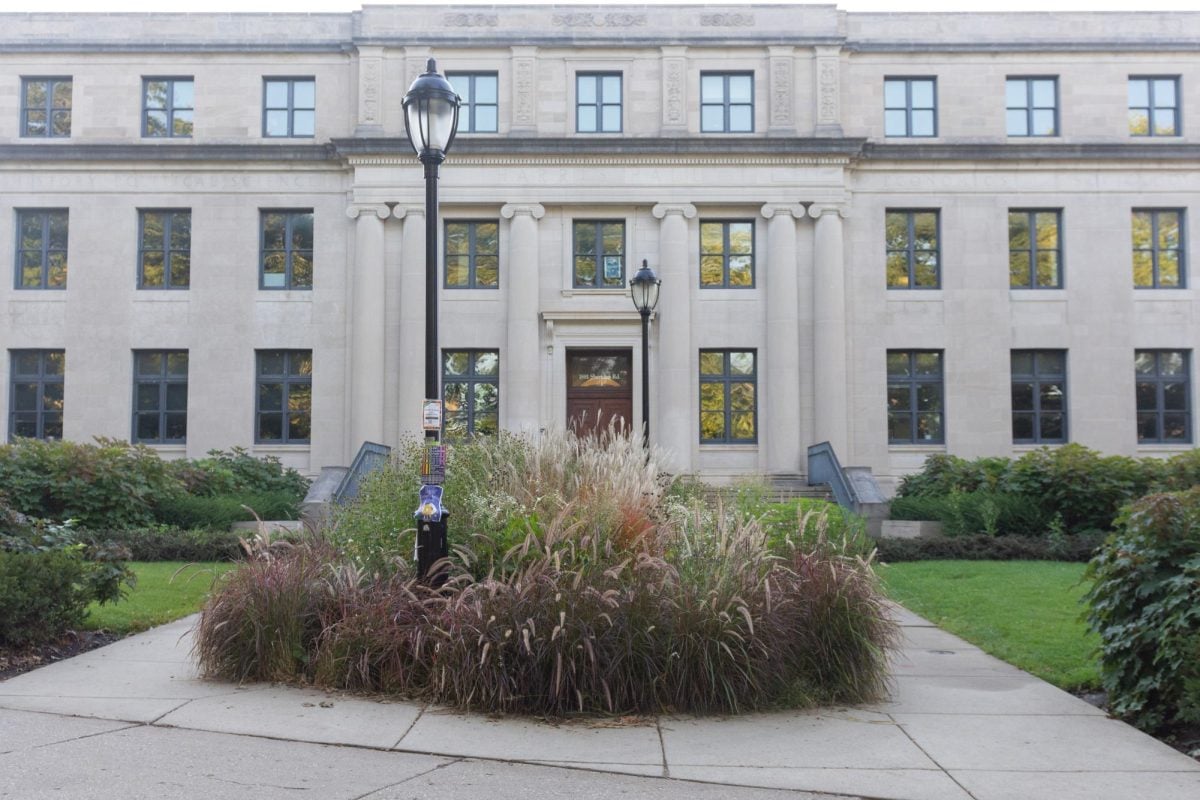More than 300 people crowded into Harris Hall on Wednesday night to hear Peter Singer, a bioethics professor at Princeton University, speak about altruism and the ethics of charitable giving.
Singer explained the basics of effective altruism, the idea of giving in a way that does as much good as possible, and invoked prominent figures like Bill and Melinda Gates and Warren Buffett to illustrate the movement’s underlying philosophy that all lives have equal value.
Singer said giving effectively can be looked at very objectively. Comparing the $45 million spent by the Metropolitan Museum of Art on Duccio’s Madonna and Child painting to providing trachoma treatments in developing countries, Singer said the latter is obviously an objectively better use of money.
“I think it’s very hard indeed,” Singer said, “to see the enhancement of the experience of people at the Met, even over many years, could be as significant as preventing a million people from becoming blind, and not only being unable to see works of art but being unable to see anything at all.”
Singer said self-esteem plays a key role in effective altruism because for many people, acting in a way that allows them to believe they are good people drives extreme actions. He pointed to people who gave away half their annual income to charity or donated kidneys to strangers as examples of effective altruism in practice. He said people have reasonable grounds for determining how much they are willing to give, but individuals need to feel that their actions are significant.
He also pointed out different altruistic strategies. For example, changing the system of Western agricultural subsidies that impoverish peasant farmers in developing nations would be a high-risk, high-reward strategy with an unlikely but enormously beneficial payoff, he said. He contrasted this strategy with that of giving money to buy malaria-fighting mosquito nets, which would affect many people but on a smaller scale.
“It’s hard to know how much difference we’re going to make by trying to change some of these systems,” Singer said. “I think that would be an excellent thing to do. The question is, how do you do it?”
Emily Hittner (Weinberg ’13) said after reading Singer’s work for a philanthropy class she took in SESP, she was thrilled to hear that he would be speaking at NU.
“I think in general things like this challenge your ability to question your capacity to give back,” Hittner said.
The event, which was sponsored by the Buffett Center, Northwestern Conference on Human Rights, One Book One Northwestern and the Alice Kaplan Institute for the Humanities, packed Harris Hall to the point where people could barely stand in the aisles.
“I thought he had a lot of good things to say,” said Weinberg senior Tyler Dillon, a former Daily columnist. “I like how he showed examples of real people making altruism a real part of their lives.”
Email: [email protected]
Twitter: @madeleineelkins













